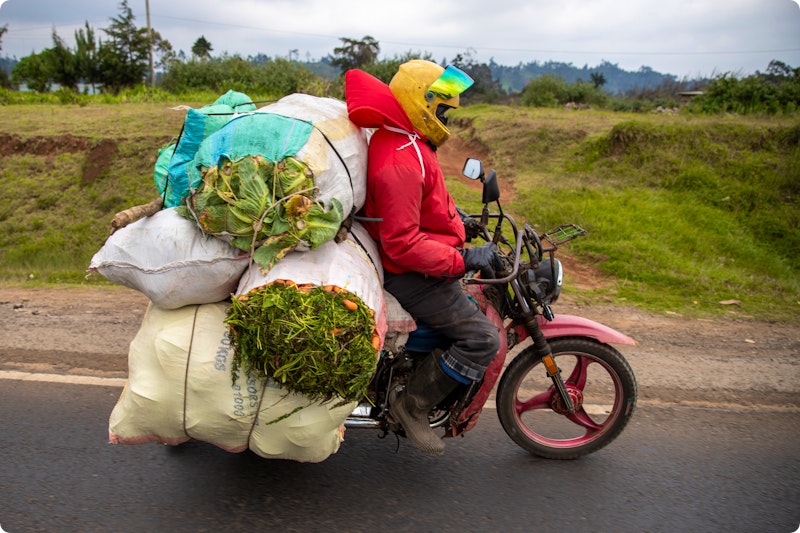
In Bugesera, a young farmer is forced to dump half his tomato harvest because it spoiled before reaching the market. In Rubavu, fresh fish intended for export fails to meet quality standards, not due to poor fishing, but because Rwanda has only one flaked ice machine, sitting many kilometres away in Rusizi.
Without reliable ways of transporting food in a cooled environment, food arrives at its destination spoiled, sales are lost, and the livelihoods of farmers, fishers and other producers suffer. These stories are repeated across Rwanda and across Sub-Saharan Africa time and time again. The cost is more than wasted produce. It’s lost income for those growing, sourcing and supplying the food, higher prices at the market or shop for families, fewer jobs, and missed opportunities for value addition and climate-smart agriculture. Cooling is not a luxury; it is an essential public infrastructure for a modern, competitive, and resilient economy. And it will become even more so as climates change and temperatures rise.
The Festival of Cooling
From the 6th – 10th October 2025 the Africa Centre of Excellence for Sustainable Cooling and Cold-chains (ACES) will host the Festival of Cooling in Kigali, Rwanda. This first of its kind event in the Global South is not just about talking, it’s about making the invisible visible, and putting cooling with all its benefits into people’s hands, literally.
Participants will pedal bicycles to chill juice bottles in the “cycle to cool” challenge, where the bike itself powers the refrigeration system. The faster you pedal, the quicker your drink cools, and riders will compete to set a record for the lowest temperature achieved by pedalling! Children can also compete to stop a block of ice from melting in the ice storage game, learning the basics of insulation without realising they’re in a science lesson.
Is cooling really a necessity or a modern luxury?
At the Festival of Cooling, you will get to see, taste, and feel the difference between produce that’s been through a proper, fully integrated cold-chain (an end-to-end temperature controlled environment) and food that hasn’t. Some attending the event will have the opportunity to sample food at the festival picnic, where one plate has been preserved by cooling, the other left at room temperature. You will also have the opportunity to use a thermal imaging camera to explore how cooling transforms everyday life.
And yes, there will be conversations: farmers, health workers, students, innovators, researchers and policymakers working together to solve practical, on-the-ground challenges and remove barriers to the widespread use of cooling in Africa. But the real magic will happen in the spaces between sessions: a farmer discovering that even though she lives in an off-grid area, she can use a solar cold room, or students deciding to start cooling and cold-chain clubs at their schools.
But cooling is about more than just food, it is also critical to the safe delivery of temperature sensitive products central to health, personal and collective thermal comfort, and a plethora of other things that underpin a safe, healthy and productive life. Each day of the festival will focus on a different theme, ranging from securing harvest and protecting vaccines, to staying comfortable when the temperatures rise, catalysing new start-ups, and inspiring the next generation. The week will end with a high-level policy dialogue to ensure the ideas, networks, and commitments formed don’t melt away after the festival.
Cooling is often invisible until it fails
When vaccines spoil in rural clinics or fresh produce rots on the roadside, the loss is immediate and personal. The Festival of Cooling is about making the invisible visible. It’s about showing that cooling is not just about technology and equipment, but about people, communities, hope, livelihoods, and resilience.
The Festival of Cooling is not an end in itself. It is the start of a movement. What we build during that week: the networks, the ideas, the commitments, etc. can shape a future where no producer has to dump their rotting food for lack of cooling, no clinic has to turn away vaccines degraded by heat, and no family has to pay higher prices for food because so much of it spoiled on the way to market.